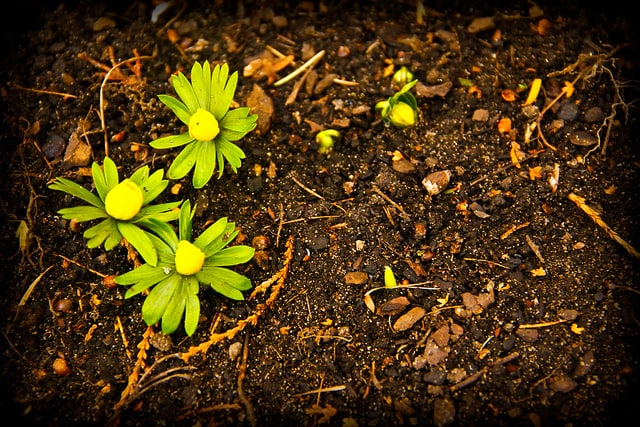We all want to figure out how to reduce our carbon footprints. We wash our dishes by hand, we use reusable shopping bags, we bike instead of drive. There are dozens of different ways that you can reduce your energy consumption, waste, and “green up” your lifestyle. The idea of “going green” has grown so much in popularity that now sustainability is a branding technique. Green is now its own industry.
There are a lot of reasons to want to go green. For one thing, it is a huge money saver. Even the upgrades you make that might be expensive at the beginning almost always more than pay for themselves in the long run. And, if you are lucky enough to live in a deregulated energy market, you can even choose renewable energy plans that are more affordable than those that are traditionally sourced fossil fuels.
For example, the energy prices Texas offers to its residents vary wildly based on providers, as do those for residents in Illinois, Delaware, most of New England, etc.
A nation that destroys its soils destroys itself. Forests are the lungs of our land, purifying the air and giving fresh strength to our people.
~ Franklin D. Roosevelt
Affordability, however, is not the only reason to reduce your energy consumption. There are a lot of very important reasons to opt for environmentally friendly and sustainable options. Here are a few of them.
Sustainability is Healthier For You
One of the tenets of sustainable living is to rid yourself of processed foods and other chemicals. Eating only fresh and whole nutrients, making as much of your own food as possible, etc reduces the demand for factory produced processed meals and meal components. This doesn’t necessarily mean that you need to go full vegetarian or vegan, but it does encourage you to source your meat based proteins from local butchers instead of factory farmed alternatives you’ll find in most grocery stores.
Independently raised and free range livestock have fewer antibiotics and hormones injected into them, eat healthier diets and–as crass as it might sound–taste better than mass produced meats.
In addition to naturally sourced foods, going green reduces the likelihood that we will have to deal with issues like skin cancer, because the less waste we produce, the healthier our ozone becomes and hopefully if we keep up with our sustainability kick, it will eventually repair itself (we’ll talk more about this later).
Going Green is Better For the Animals
We’re not just talking about your pets–though they will benefit from your switch to natural cleansers as their living environments will be healthier–we’re talking about natural ecosystems and wildlife. The less waste we produce as humans, the better it is for the ecosystems on our planets.
By now everybody knows about the melting of the ice caps and the danger that poses to the polar bear and penguin populations. These are not the only animals affected. For example, global warming produces acid rain, which messes with the pH balance of our oceans. Even tiny animals like mollusks are experiencing disastrous effects from this increased acidity.
Their shells are thinner and soon they won’t be able to produce any shells at all. Most oceanic life can only exist within a certain range of acidity so as we produce more waste and pollution, we are essentially depleting our oceans of life.
Going Green is Better for the Planet
There are probably a few people reading this that are convinced that global warming aka climate change is a hoax or not that big a deal. After all, the Earth does regularly warm and cool. The difference is that the natural warming and cooling happens over eons, not decades.
The science behind climate change is easy enough for any first year chemistry student to understand. As carbon and other free radicals are released into the atmosphere they break apart Ozone (O3) molecules to form different compounds. These compounds react with each other in different ways, but one thing is universal: the ozone molecules are harder to form than to split up. This is why the hole exists.
The good news is that, by reducing our carbon footprints and waste production, we are reducing the number of errant chemicals in our atmosphere. Eventually they will, for lack of a better term, “react themselves out” of the ozone…but only if we continue to reduce the amount of pollutants we send out into the water and the air.
Going Green Saves you Money
Going green can definitely save you some money in your pocket. Your electric bill can drop to 15% if you can adopt to some smaller changes like switching off gadgets when not in use or use of energy efficient lights or proper insulation of your windows and doors. Keeping thermostat one degree down during summers and one degree up in winters can also result in saving of power which will further lower your electric bill.
Going Green Increases Your Property Value
Once you construct a green home, it will save you money due to excellent insulation and durability of sustainable materials. These energy efficient improvements can increase your home’s value in real estate market. Whether you plan to install solar panels or energy saving lights or use of sustainable materials, a carefully designed, money-saving house always have a huge demand in the market which means you can expect better return for your property.
Going Green Helps You Reduce Your Carbon Footprint
Who does not want to reduce his/her carbon footprint? While there are number of ways to reduce carbon footprint, one of the easiest way is to design your home in such a way that it has minimum impact on the environment. Here is one post on top 15 green home building techniques and ideas that can help you in creating a green home. Apart from this, you can also get your home audit done and get to know what all measures you can take to make your home more environment friendly.`
Basically, going green is about more than saving a few bucks at the pump or the grocery store. It is about healing the planet so that we can all–human and other animals alike–be healthier and live longer.






